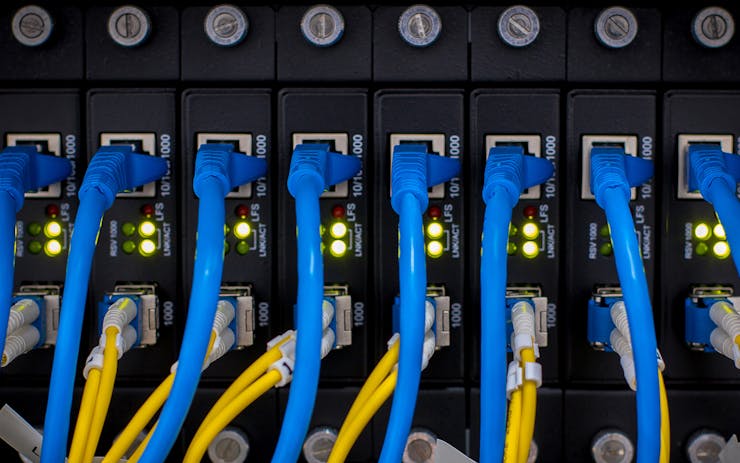Along party lines, the Federal Communications Commission voted 3–2 on Thursday to undo government rules that regulate internet service providers, repealing so-called net neutrality regulations amid an outcry from consumer advocates.
Removing protections could stifle cannabis advocacy, hamper small businesses, and prevent medical patients from accessing vital information.
The decision grants broadband companies sweeping control over how Americans access the internet. It removes rules that prohibited providers from blocking websites, slowing access to some services, or charging more for certain content.
Wired magazine describes the rollback as “the difference between a free and open online experience, and one where corporations dictate what you can see, and how fast you can see it.”
The new rules pose a potentially big threat to the cannabis movement, which has relied on the internet as a vital tool for education, research, and political organizing. Removing net neutrality protections could stifle advocacy efforts, hamper small businesses, and prevent medical patients from accessing vital information.
Cannabis isn’t alone. Critics say the new policy could hurt all sorts of stakeholders: students, startups, rural America, minority women, small businesses in Texas, the #MeToo movement, and countless others. Sen. Susan Collins, a Maine Republican, said in a letter to the FCC that repealing net-neutrality protections “would cause immediate harm to the innovation economy.”
FCC Chairman Ajit Pai disagrees. “We are helping consumers and promoting competition,” Pai said before Thursday’s vote, according to the New York Times. “Broadband providers will have more incentive to build networks, especially to underserved areas.”
The degree of change consumers will experience will depend largely on the degree to which internet providers take advantage of the new rules. Comcast, which spent big on a social media campaign in support of the rollback, has pledged on numerous occasions to “not block, throttle, or discriminate against lawful content.”
We do not and will not block, throttle, or discriminate against lawful content. We will continue to make sure that our policies are clear and transparent for consumers, and we will not change our commitment to these principles. pic.twitter.com/YHDADvFqau
— Comcast (@comcast) November 22, 2017
Even if you take Comcast at its word—and you might want to ask a Comcast customer’s advice before you do that—a crucial term in its promise is “lawful.” Is cannabis content lawful? That’s a complicated question.
Presumably some content, like basic information about the cannabis plant, is above board even in the eyes of the feds. But increasingly in states with legal cannabis, the internet hosts much more than that. Some services now allow customers to place pre-order or delivery purchases, transactions that are clearly illegal under federal law. Even websites that sell bongs and bubblers are on shaky legal ground.
Washington state Attorney General Bob Ferguson said his office will file a legal challenge to the FCC decision.
The rollback could hurt the cannabis industry in other ways, too. Trying to raise money for your cannabis startup? Slow speeds could limit your visibility to customers and investors, critics say, making growth and fundraising that much more difficult. The change could also give a leg up to larger companies—such as those from the agriculture, tobacco, or pharmaceutical industries—that could afford to pay for preferred treatment.
In a letter to the FCC, a group of more than 800 tech startups said the rollback would “directly impede an entrepreneur’s ability to ‘start a business, immediately reach a worldwide customer base, and disrupt an entire industry.’ Our companies should be able to compete with incumbents on the quality of our products and services, not our capacity to pay tolls to Internet access providers.”
Cannabis companies already face obstacles to reaching would-be customers on the internet. Companies like Facebook and Instagram have have routinely deactivated cannabis-related accounts, even those of state-licensed businesses.
The fight for net neutrality isn’t over yet. Immediately after the FCC’s vote Thursday, Washington state Attorney General Rob Ferguson announced that his office will file a legal challenge to the decision.
“Yesterday I sent a letter to the FCC asking them to delay their vote gutting net neutrality. Unfortunately they did not,” Ferguson said in a statement. “Today, I am announcing my intention to file a legal challenge to the FCC’s decision to roll back net neutrality, along with attorneys general across the country.”
He said his office will file a petition for review in the coming days.
Other opponents of the rollback have shifted their focus to Congress, which has the power to pass laws that would supersede the FCC regulations. Contact information for US Senators and House members is available online.





